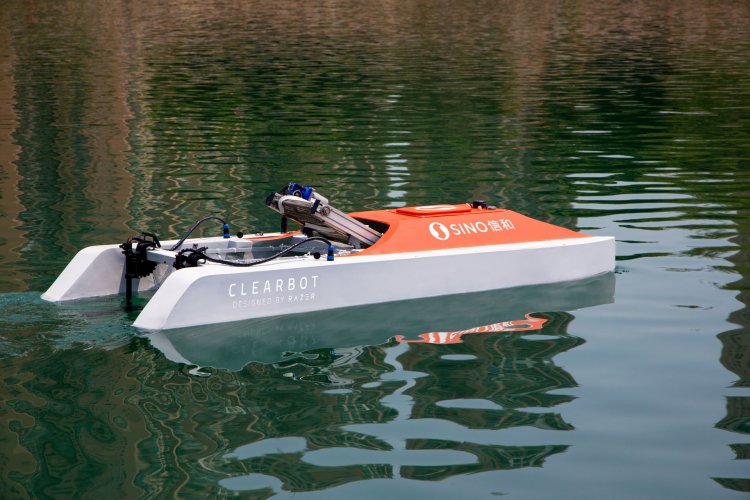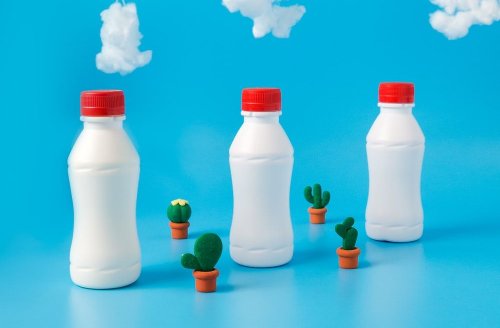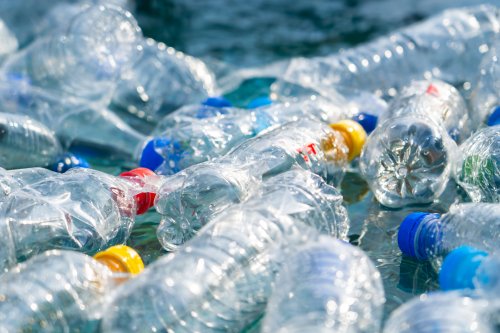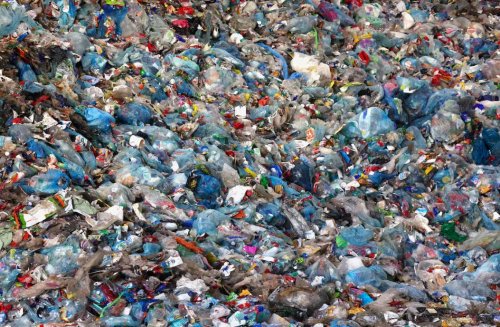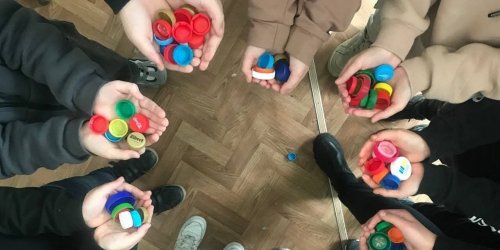Hong Kong-based startup Open Ocean Engineering has developed the Clearbot Neo, an AI-powered robotic boat that autonomously collects tons of floating debris that could escape from the city's harbors into the Pacific Ocean.
The developers launched an autonomous garbage collector back in November 2020, writes New Atlas. After partnering with gaming company Razer last year, the startup unveiled a redesigned Clearbot and launched it in Hong Kong waters.
How did the idea come about
After graduating from the University of Hong Kong in 2019, computer engineers Sidhant Gupta and Utkarsh Goel founded a startup and started working on their Clearbot solution.
They were inspired to create a robotic vessel designed to remove floating plastic debris from local waterways after a trip to the resort island of Bali, where they witnessed how local workers on small boats manually remove waste from the water.
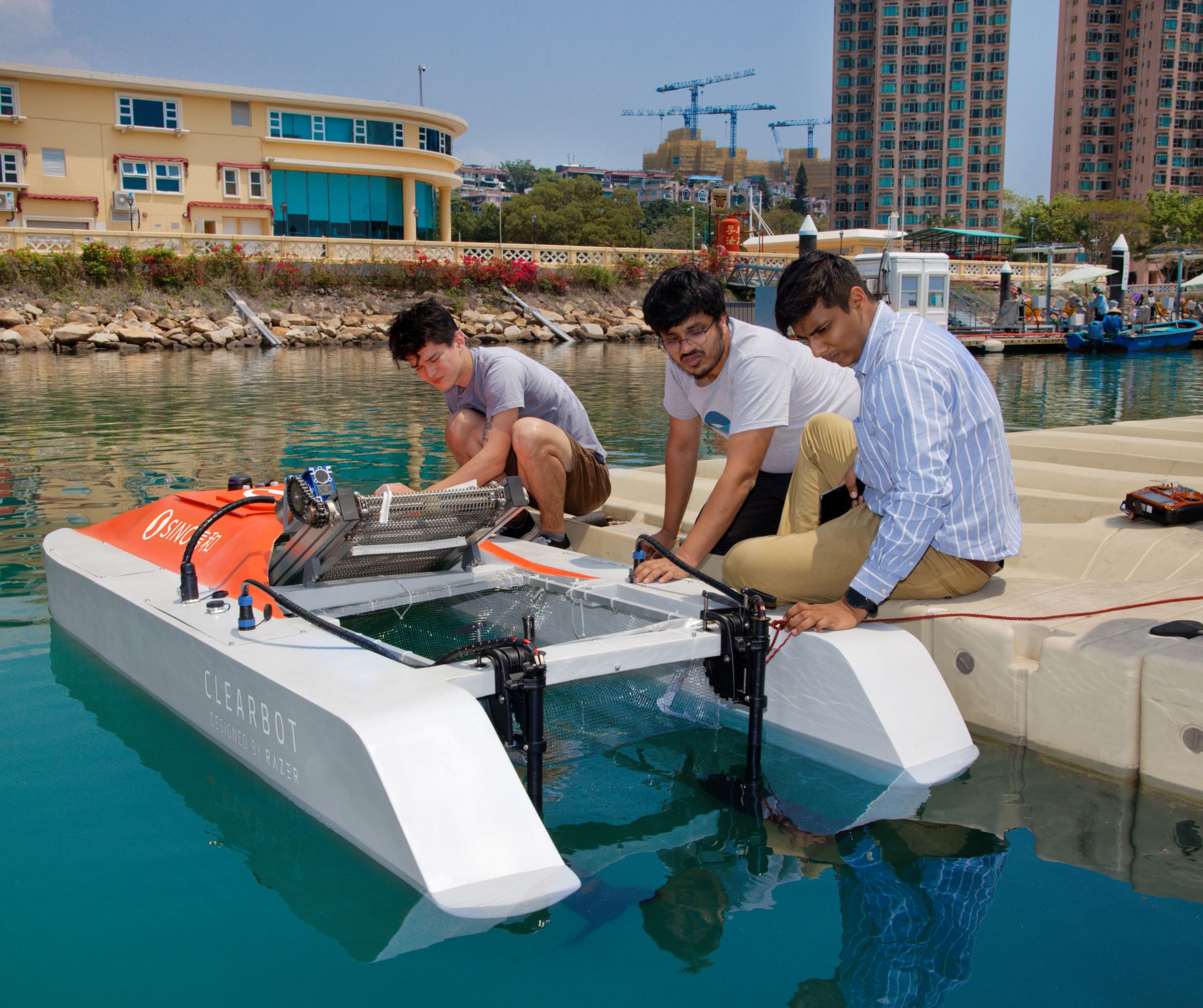
Photo: Clearbot
So the engineering duo developed a basic aluminum prototype in Bali and then a fiberglass version. As early as last June, the startup began working on a more sophisticated design in partnership with gaming hardware brand Razer.
How the boat works
Clearbot Neo is only 3 m long and 1.3 m wide. One battery charge is enough for 4 hours of work. In addition, the boat is equipped with a solar-powered electric motor to further reduce the environmental impact.
The robotic marine garbage collector can be controlled remotely or autonomously, using artificial intelligence to recognize and register the types of garbage it collects.
The AI camera system is being used not only to identify waste, but to photograph every plastic waste that enters the conveyor. These images are identified by GPS coordinates and stored in the company's database hosted on the Microsoft Azure platform for further analysis.
The debris falls on an onboard conveyor belt installed at the bow of the boat between its double hulls and into a holding bin next to the stern with a capacity of 200 kg.
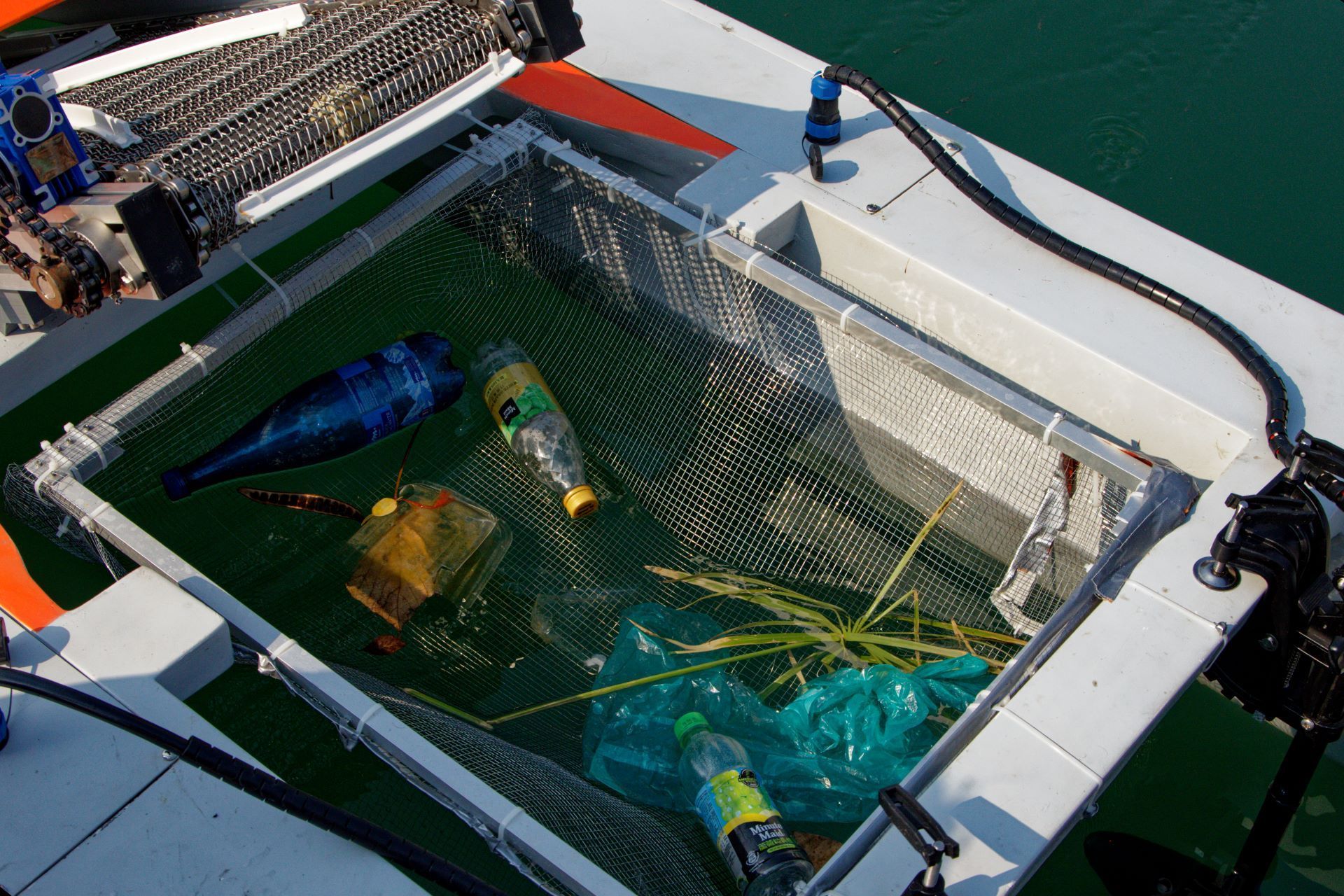
Photo: Clearbot
According to the company, Clearbot can collect tons of trash a day for recycling or disposal. When equipped with a special boom, the boat can deal with local oil and fuel spills by collecting pollutants.
Before EcoPolitica reported that the French have developed the concept of ecological catamaran Manta to collect plastic waste in the ocean and process it for fuel on board.
Also at A&M-Corpus Christi University in Texas (USA), a group of students created work that is able to clean the ocean floor and water from plastic and other debris.
Recall that cleaning platform System 002, which was developed by The Ocean Cleanup, collected 9 tons of plastic in the waters of the Pacific Ocean in just 12 weeks.

